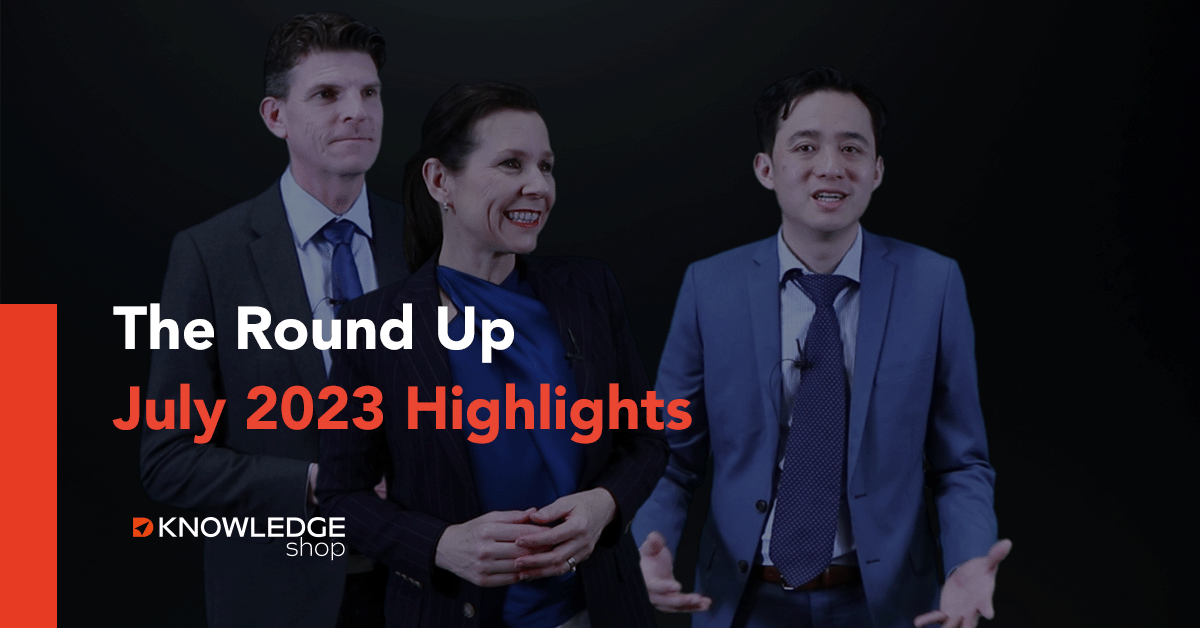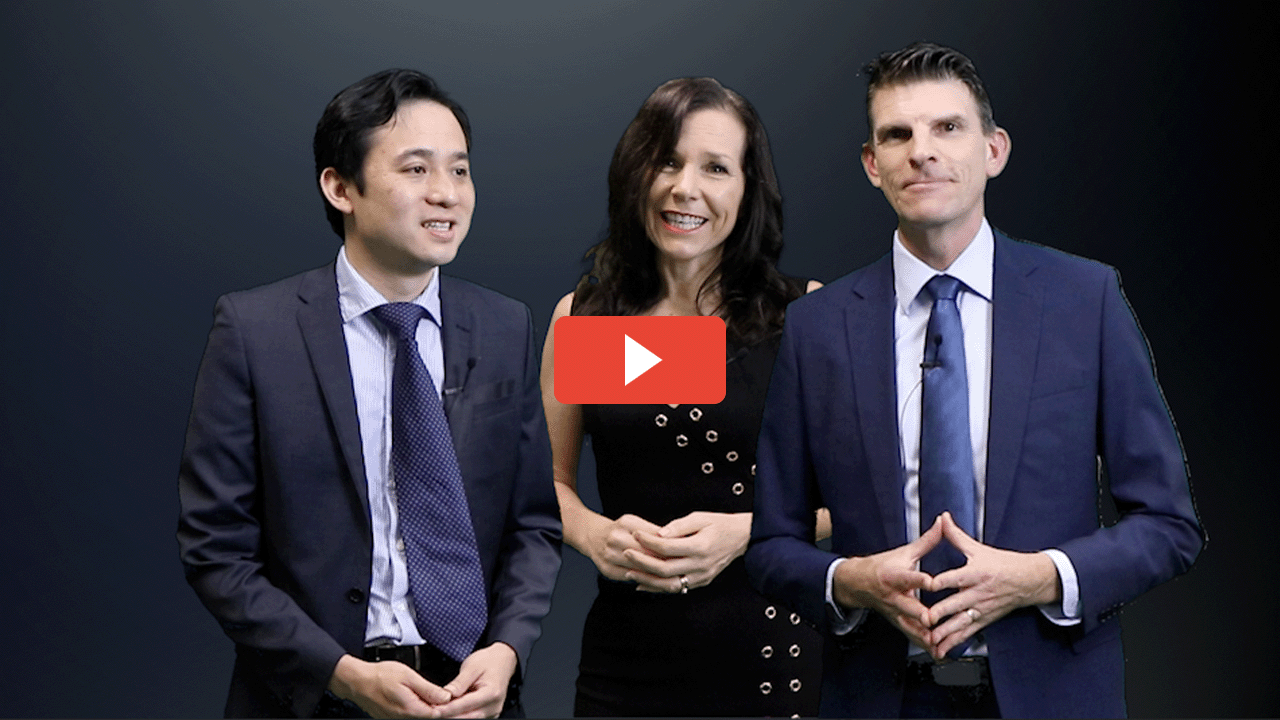May 2023 Round Up - Trust distribution complexity
This month, trust distributions are under scrutiny. We look at the issues and problem areas in practice.
Plus, the status of the 2023-24 Budget measures including the late lodgment penalty small business amnesty.
Change is a constant for the profession. The Knowledge Shop membership can help you and your team keep ahead of change with an advisers' help desk, workpaper knowledge base, quarterly PD, and more - wherever you are and however you are working. Book in a time for a tour or call the Knowledge Shop team on 1300 378 950.
Inside this month Michael Carruthers (Tax Director), Matthew Tse (Tax Adviser) and Lisa Armstrong (MD) bring you:
- Trusts and trust distributions under scrutiny - the ATO's brief reminder on the key points that trustees and their advisers need to be across when working through the process of appointing trust income by the end of the 2023 year.
- The small business debt amnesty and other 2023-24 Budget measures
- Tax time targets - the tax time compliance priorities and targets
Distributing trust income
Trust distribution checklistManaging trust distributions for clients has become an increasingly complex area and a risk to practices and their clients. Knowledge Shop has created a trust distributions checklist that identifies key issues that should be considered when assisting clients with trusts and managing the year-end distribution process. Members, login and access the checklist from Year End 2023/ Trusts 2023. Not a member? Check out the accounting membership. |
As we approach the end of the financial year, the ATO has reminded trustees and their advisers they need to take care with resolutions relating to trust distributions. In order for beneficiaries to be made presently entitled to trust income (or specifically entitled to franked dividends and capital gains) there are a number of items that need to be checked.
The checklist published highlights the following key items:
- Checking that beneficiaries are valid income or capital beneficiaries of the trust under the terms of the trust deed;
- Ensuring that any procedures within the deed are followed to make beneficiaries presently entitled to income;
- Ensuring that beneficiaries are made presently entitled to the income by 30 June 2023 at the latest, or earlier if required by the trust deed;
- Being aware of the economic and tax impact if the trustee fails the appoint income by year-end; and
- Ensuring that resolutions are clear and unambiguous.
Given the ATO’s updated ATO guidance on the reimbursement agreement rules in section 100A and Division 7A means that this is an area where trustees and advisers need to take care.
More information
Late lodgment amnesty and other 2023-24 Budget measures
Certain small business clients will be able to take advantage of a lodgment penalty amnesty up until 31 December 2023.
The amnesty provides that late lodgment penalties will be automatically remitted where tax obligations, including income tax and business activity statements, that were originally due from 1 December 2019 and 28 February 2022, are lodged between 1 June 2023 and 31 December 2023.
To qualify, the small business must have had aggregated annual turnover of less than $10m at the time the original lodgment was due. However, the ATO indicates that the amnesty will not be available to private groups controlling over $5m of net wealth. How net wealth will be calculated for these purposes is not yet clear.
While late lodgment penalties will be remitted, the amnesty doesn’t apply to general interest charge amounts that might have accrued on outstanding tax debts.
More information
$20,000 instant asset write-off threshold
The ATO has also released some brief comments on the Budget measure relating to the increase in the instant asset write-off threshold for small businesses (turnover less than $10m) to $20,000 between 1 July 2023 and 30 June 2024.
While the measure is not yet law, the ATO indicates that the $20,000 threshold will apply on an asset-by-asset basis, which means that multiple assets can be written off in full under these rules during the 2024 income year. Assets which cost $20,000 or more and which don’t qualify for an immediate deduction can be added to the small business general pool, being depreciated at 15% in the first year and 30% in subsequent years.
More information
Medicare levy
Treasury Laws Amendment (2023 Measures No. 2) Bill 2023 contains a series of measures including some of the 2023-24 Federal Budget measures:
Medicare levy and Medicare levy surcharge income thresholds
The Medicare levy low-income thresholds for singles, families and seniors and pensioners will increase from 1 July 2022.
|
Threshold |
From |
To |
|
Singles |
$23,365 |
$24,276 |
|
Family |
$39,402 |
$40,939 |
|
Single seniors & pensioners |
$36,925 |
$38,365 |
|
Family seniors & pensioners |
$51,401 |
$53,406 |
For each dependent child or student, the family income thresholds will increase by a further $3,760 instead of the previous amount of $3,619.
Tax accounting for primary producer registered emissions units
Eligible primary producers will be able to treat the net proceeds from the sale of Australian carbon credit units they first held on or after 1 July 2022 as primary production income for the purposes of the Farm Management Deposit Scheme and accessing income tax averaging arrangements, provided they are individuals who meet the specified criteria. Specifically, under the new amendments, income derived indirectly from a trust to an eligible primary producer will be considered net income and income received directly as an individual will be considered gross income.
The taxing point for Australian carbon credit units held by eligible primary producers will also be changed to the point of sale. Similarly, income derived from farm abatement activities with carbon service providers supporting such units first held on or after 1 July 2022 will be treated as primary production income for the purposes of the Farm Management Deposit Scheme and accessing income tax averaging arrangements.
The amendment is designed to encourage primary producers to diversify their income by generating and selling Australian carbon credit units and supporting the creation of such units, to help balance fluctuations in income derived from farming.
Cash flow relief for small and medium businesses - 6% GDP adjustment factor for 2023-24 for PAYG and GST instalments
Reduces the GDP adjustment factor for the 2023-24 income year to 6%
Enhancements to the Home Guarantee Scheme
From 1 July 2023, access to the Government’s Home Guarantee Scheme will be expanded to joint applications from “friends, siblings, and other family members” and to those who have not owned a home for at least 10 years.
Share this
You May Also Like
These Related Stories

July 2023 Round Up - Simplifying the tax residency rules

May 2022 Round Up - Tax Time 2022 priorities


No Comments Yet
Let us know what you think